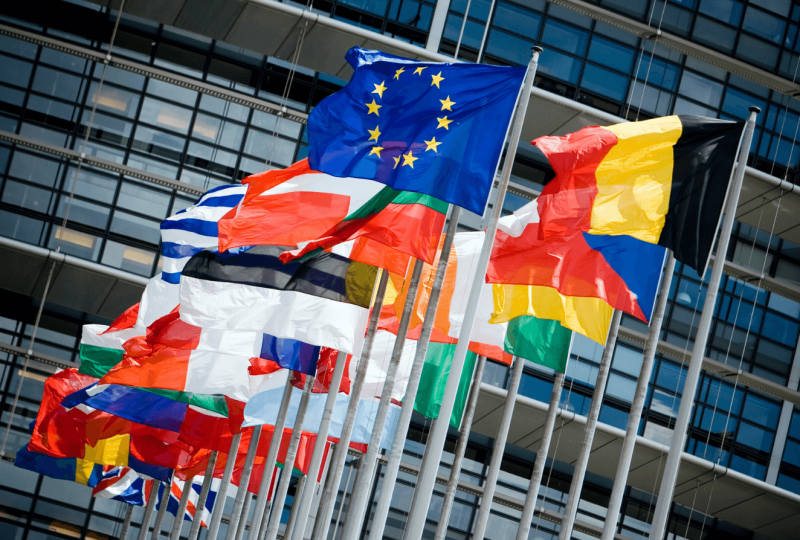European Markets Rise As COVID Wave Knocks German Consumer Confidence
Nov 25, 2021

Despite an increase in coronavirus infections and rising inflation in Germany, European stock markets climbed on Thursday.
By afternoon trade in London, the FTSE 100 had risen 0.1 percent, while the CAC had gained 0.3 percent in Paris and the Frankfurt DAX had gained 0.1 percent.
Despite a recent increase in COVID and worries of another shutdown, consumer confidence in Germany fell to -1.6 in December, down 2.6 points from the previous month, according to the GfK barometer.
Meanwhile, third-quarter growth predictions for Europe's largest economy were lowered down from 1.8 percent to 1.7 percent.
"Consumer sentiment is presently being pressured from two sides," said Rolf Buerkl, a consumer analyst at GfK. “On the one hand, the number of cases in the fourth wave of the coronavirus pandemic is rapidly increasing, threatening to overwhelm the health system and resulting in more limitations. Consumer purchasing power, on the other hand, is shrinking due to a high inflation rate of 4%. The prognosis for the next holiday season is now a little grim."
Germany has become the latest nation to reach 100,000 coronavirus fatalities since the epidemic began, according to official numbers revealed on Thursday.
In other currency markets, the pound fell to an 11-month low versus the dollar, its lowest level of the year, as the potential of the US Federal Reserve tightening policy sooner than expected bolstered the greenback.
The pound fell 0.1 percent versus the dollar to $1.3304, its lowest level since December last year.
As a result of the news, the euro fell to its lowest level versus the dollar since July of last year. In addition, it was close to a 21-month low against the pound.
The markets in the United States are closed for the Thanksgiving holiday. The S&P 500 and Nasdaq both finished Wednesday with solid gains, while the Dow fell marginally.
It came as statistics indicated that the US economy expanded at an annualized rate of 2.1 percent in the third quarter of this year, slightly faster than the 2% rate forecast a month earlier, with consumer expenditure up 1.7 percent.
The Bureau of Economic Analysis of the US Commerce Department said that growth slowed to 6.7 percent in the prior quarter due to a decrease in consumer expenditure.
Meanwhile, the US Labor Department said separately on Wednesday that initial jobless claims declined by 71,000 to 199,000 in the week ending November 20. This was more than analysts' expectations of 260,000, and it was the lowest level since November 1969, when it was 197,000.
On Thursday, Asian equity markets mainly climbed as a slew of positive economic data fueled hopes that the Federal Reserve will withdraw its massive financial assistance and raise interest rates sooner than expected.
The Nikkei increased 0.7 percent in Japan, while the Hang Seng in Hong Kong jumped 0.2 percent and the Shanghai Composite fell 0.2 percent.
Tensions between the US and China have risen further after Beijing stated it will take all necessary steps to defend its enterprises and threatened retaliation in response to the new round of US restrictions.
On Wednesday, the US government added 12 companies to its trade blacklist, citing national security and foreign policy concerns.




